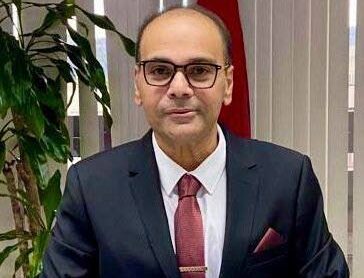Appeal Court to rule on police officers' social media privileges

THREE Appeal Court judges have been asked to strike out a police service regulation which one officer says infringes his rights.
The contentious regulation prohibits police officers from publishing or broadcasting a personal statement on national or local political or administrative issues.
The entreaty to strike out the regulation was made by the lead attorney for an Anti-Kidnapping Unit officer who was suspended in 2021 over a social media post.
PC Brad Lee Lum filed a constitutional claim challenging the constitutionality of regulation 138, contending it disproportionately breaches his rights to freedom of expression, political expression and privacy.
He is also seeking a declaration that the institution of disciplinary proceedings against him is unconstitutional.
In June 2023, Justice Robin Mohammed dismissed Lee Lum’s case, holding that he did not find the rule excessive, nor was it a blanket restriction.
“Police officers are free to express their views provided they do not do so on a publicly accessible platform or forum that has the potential to undermine the collective efforts of the service to maintain a public appearance of impartiality and political neutrality,” the judge said in his ruling.
Ramlogan did not agree. On March 1, addressing Justices of Appeal Mark Mohammed, Peter Rajkumar and Maria Wilson, he said the regulation was a blanket prohibition and was vague and unclear: “Precision is needed.”
He posited it would be implausible to expect a police officer who wanted to speak out against corruption in the police service, for example, to first have to seek the commissioner’s permission, as the regulation provides. Ramlogan said the type of restrictions contained in the regulation were no longer reasonable, given the advancement in technology and democracy.
He suggested the court could “judicially re-legislate” the rule, but it should be left to the legislature to draft a clear, precise and certain rule, as it raised a “politically sensitive” issue.
In resisting the appeal, attorney Vanessa Gopaul, who led a team for the Attorney General, said the regulation was not a blanket prohibition on Lee Lum’s rights to freedom of expression, nor was it broad, vague or disproportionate.
She contended Lee Lum’s constitutional complaint was premature and aimed at circumventing the disciplinary process.
“The disciplinary tribunal should be allowed to do its job.”
She urged the judges not to determine the meaning of the post, since that should be left to the tribunal. However, she took them through possible interpretations of the post.
She also said when Lee Lum joined the police service, he accepted the rules and regulations which governed his job, until he was charged with a disciplinary offence.
“Police officers should not be allowed to come to court to challenge their terms and conditions as unconstitutional.”
The post in question was published on June 19, 2021, on Lee Lum’s Facebook account. Afterwards he was suspended, pending disciplinary action. A media release on June 24, 2021, announced his suspension and contained comments by then-commissioner Gary Griffith about the alleged breach of the regulation.
Lee Lum maintained he saw the post on his account and deleted it. He contended his Facebook was hacked, since he often used a communal computer at the police station.
He denied being the author of the post or influencing its publication, and said he had no political affiliation or interest in any political party, nor had he ever expressed any political opinion on social media or in social settings,
The judges have reserved their ruling.


Comments
"Appeal Court to rule on police officers’ social media privileges"